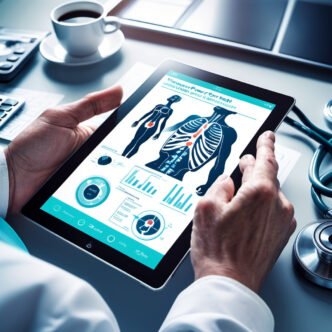Introduction to Technologies
Technologies are the foundation of modern society, driving innovation, improving efficiency, and enhancing our quality of life. In its essence, Technology refers to the practical application of scientific knowledge. To solve problems and achieve objectives. Over the years, technological advancements have profoundly impacted every aspect of human activity, from communication and healthcare to transportation and entertainment.
This essay sheds light on the concept of technologies, their types, importance and impact of change on contemporary life, highlighting their important role in shaping the future.
Evolution of technologies
Ancient technologies
The journey of technology began with early human ingenuity. Tools like Stone axes and simple shelters Illustrate the early stages of technological development. These innovations were critical to survival and laid the foundation for more complex developments.
far industrial
The Industrial Revolution (18th-19th century) marked a turning point in technological history. Like revolutionary inventions The steam engine, spinning jenny, and mechanized looms Transformed industries, accelerates urbanization and economic growth.
Technical revolution
The 20th century began. Technical revolutionCharacterized by the invention of computers, satellites, and modern machinery. This era was instrumental in integrating technology into everyday life, facilitating global communication and automation.
Types of technologies
Information and Communication Technology (ICT)
ICT is one of the most influential areas of technology, covered by Computers, mobile devices, software and the Internet. It has revolutionized communication, enabling instant communication and worldwide access to information.
Medical Technologies
Advances in medical technologies, incl MRI scanners, prosthetics, and robotic surgery systems, health care has improved significantly. These innovations improve diagnosis, treatment and patient care, saving countless lives.
Green Technologies
In pursuit of sustainability, green technologies focus on reducing environmental impact. Examples are included. Renewable energy systems, electric vehicles Which are very important to deal with climate change.
Artificial Intelligence and Machine Learning
AI and machine learning are transforming industries by enabling technologies. Data analysis, automation, and predictive modeling. Applications range from voice recognition systems to autonomous vehicles.
Biotechnology
Biotechnology uses biological processes to produce products and solutions, including Genetic engineering, biopharmaceuticals, and agricultural enhancement. It plays an important role in health care and food safety.
The role of technologies in everyday life
Improving communication
Technologies like Smartphones, social media platforms, and video conferencing tools It has bridged geographical distances, promoting global connectivity and cooperation.
Enhancing education
Digital tools, eg E-learning platforms and virtual classrooms, has transformed education, making learning more accessible and interactive.
Transforming health care
With innovations like Telemedicine, wearable health devices, and advanced imaging technologies, healthcare is now more personalized and efficient.
Promoting economic growth
Technologies drive economic growth by enabling. Automation, innovation, and efficiency. From manufacturing to service industries, technology has streamlined processes and created new opportunities.
Advantages and challenges of technologies
Benefits
- Efficiency and productivity: Technologies automate tasks, increase efficiency and reduce human error.
- Connectivity: Modern communication devices have made the world a smaller, more connected place.
- invention: Technologies foster creativity and innovation, leading to breakthroughs.
Challenges
- Ethical concerns: Issues like data privacy, AI ethics require careful regulation.
- Digital distribution: Unequal access to technologies can exacerbate socio-economic disparities.
- Environmental effects: Although green technologies aim to reduce this, some technologies contribute to resource depletion and pollution.
Future trends in technologies
The rapid pace of technological innovation promises exciting future developments:
- Quantum computing: With immense processing power, quantum computers are poised to revolutionize industries such as cryptography and logistics.
- 5G and beyond: Advanced communication network will enable faster data transfer, supporting innovations like smart cities and IoT.
- Augmented and virtual reality: These immersive technologies will transform industries like gaming, education and real estate.
- Space exploration: Technologies for space exploration are developing, paving the way for interplanetary travel and colonization.
The result
Technologies are the driving force behind growth and innovation, reshaping our world in ways unimaginable a century ago. As we continue to develop and integrate new technologies, sustainability, accessibility, and ethical considerations must be prioritized.













